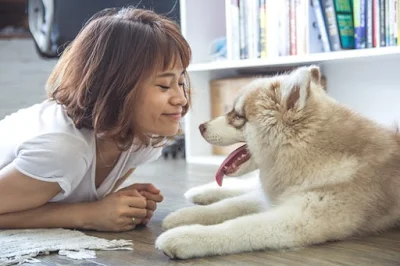As your pooch heads into his senior years, he will most likely be unable to keep running as quick, bounce as high or have the stamina he once had. Whether they're alive and well or encountering restricted versatility as the consequence of a condition, it's vital for proprietors to comprehend their pooch's points of confinement and make a practice schedule that all gatherings will appreciate.
Conditions That Limit Mobility for Senior Dogs
“The most chronic issue seen in dogs that limits their mobility and exercise level is osteoarthritis,” said Dr. Heidi Lobprise, DVM, DAVDC and spokesperson for the International Veterinary Senior Care Society. This degeneration of the joints due to long-term stress or use can happen naturally or become an issue with overweight pets. Congenital issues like hip dysplasia, which breeds like German Shepherds are predisposed to, and elbow dysplasia, which breeds like Labrador Retreivers are predisposed to, can be mild when a dog is young but worsen over time, Dr. Lobprise said. Rheumatoid arthritis or infections like Lyme disease can also limit mobility without proper care and early diagnosis.
"Senior puppies may likewise be constrained in portability in light of wounds like slipping on something, sliding into something or turning too rapidly as they pursue a toy," said Sue Berryhill, BS, RVT, VTS (Dentistry) and Certified Canine Rehabilitation Assistant. "These apparently minor slips and slides can bring about foremost or back cruciate tears and be extremely agonizing to your canine. They for the most part happen when a puppy's weight is higher than their optimal body weight," Berryhill said.
“A decrease in your dog’s exercise tolerance can also be due to decreased heart function, with valve and heart diseases limiting your pet’s mobility,” Dr. Lobprise said. Valve disease is prevalent in smaller breeds like the Cavalier King Charles Spaniel while muscle diseases like cardiomyopathy are prevalent in larger breeds like the Doberman Pinscher. If you notice your dog getting winded more easily or not walking as well as it used to, Dr. Lobprise advocates bringing them to your vet for a heart checkup.
Types of Indoor Exercise for Senior Dogs
Giving a domain brimming with both physical and mental incitement will keep your pooch feeling young and dynamic. How would you achieve this? Dr. Lobprise suggests bringing home a couple treat toys that will administer their suppers in littler measurements to enhance both physical and mental capacity and advance weight reduction in heavier pets. On the off chance that they're ready to go all over the stars, have them move around your home and go here and there stairs gradually to keep their joints moving and muscles free. Ought to climbing stairs be good and gone, put resources into a few inclines to help your canine continue moving around the house without bringing about them an excessive amount of agony.
Types of Outdoor Exercise for Senior Dogs
As a senior your dog should still be getting regular walks throughout the week, but keep them short and try not to overdo it if your pet is experiencing any kind of condition. Dr. Lobprise recommends talking with your vet to make sure you know how much your pet is capable of and what a comfortable distance will be for them to walk each day. Swimming is another excellent activity to help exercise the muscles without hurting joints. According to Dr. Loprise, swimming is also an excellent part of a therapy routine for dogs that have some sort of injury.
Dogs with physical limitations may want to keep moving, running after balls and jumping for Frisbees as they used to, but likely don’t have the stamina. “Limit non-stop games of fetch, swimming for long periods and walking in deep grass or sand for too long — these activities, while fun, will be very fatiguing after extended periods of time,” Berryhill said. You’ll also want to recognize your senior dog’s sensitivity to temperatures both hot and cold. Keep them hydrated and in the shade in the heat, especially if they’re overweight or are a brachycephalic breed like Bulldogs or Pugs.
Keeping Senior Dogs Healthy
Weight administration and general care of your senior pooch is critical. Ensure they're legitimately prepped — with trimmed nails — and at a perfect body weight to have the capacity to move around serenely. As indicated by Dr. Lobprise, giving canines who have mellow or direct torment with happy with bedding will likewise help their indications when they are resting or wake up from a rest.
Talk to your vet about orthopedic exams, X-rays (if necessary) and any prescription medication or supplements they recommend for your specific pet to help keep them active and healthy. If your dog has had an injury or is experiencing a chronic illness, Berryhill suggests contacting the American Association of Rehabilitation Veterinarians. They can help you design a rehabilitation program for your dog that may include exercise, acupuncture, cryotherapy or chiropractic appointments. Early detection is key to keeping up an exercise program.
"On the off chance that you can perceive changes [in your dog] early, you can oversee it from an early stage to improve it rapidly," Dr. Lobprise said. "Continuously converse with your vet about any medicines that they require — on the off chance that you get it before it's excessively serious, you can truly bail your pets out."







0 Comments